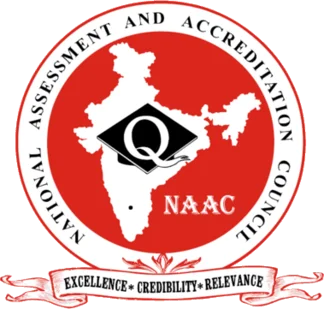Best Practices
Best Practice - I
Title of the practice: Social Responsibility and Community Outreach.
Objectives: “Commitment to Society”
To uplift and support those deprived of certain needs and rights. This Practice provides a platform for
students to dedicate their selfless service to society and inculcate a value system.
- To provide Hands - on - experience and inculcate a sense of responsibility among young students in delivering Community services.
- To give exposure to students in experiential learning beyond traditional class room learning.
- To involve students in social activities which promote citizenship role and social networking skill.
- To create a linkage between Institution and Community where they live.
- To involve students in eradicating social problems.
- To give an opportunity to the students to identify the needs and problems of the Community which intern helps them to develop among themselves a sense of social and civic responsibility.
The Context
Creating awareness and is the primary focus of this practice. The institution firmly believes in
providing community services where we live. It reflects and upholds the need for selfless service and
appreciation of the other person’s point of view and also to show consideration for fellow human beings.
It underlines that the welfare of an individual is ultimately dependent on the welfare of society as a
whole. The following challenges were identified after the survey made by the volunteers in the
community. Participation of students in community service activities fosters an all-round development
for empowerment, leadership, and the mindset to give back to those in need.
The Practice
This Program aims to develop the students’ sense of responsibility to society and social growth. They are expected to be life-long learners, and through experiential learning develop as active citizens and compassionate human being towards society. Need-based community programs are executed by NSS and NCC units in collaboration with NGOs under this program. It can include economic need, environmental, civic, health, or social responsibilities – anything that connects the student to the surroundings or to a cause, and generates a sense of responsibility towards it. The programs to be carried out were scheduled by the NSS unit and the same is informed to the volunteers. Some of the programs implemented under this are as follows
- The college organised cleanliness drives, anti-drug campaigns, literacy drives, Cloth and blanket distribution among the needy people, Workshop and rally on Peace Building and health check-ups in collaboration with renowned hospitals, various reputed NGOs in Siliguri and Bagdogra.
- Tree plantation drives and week-long workshops on recycling of plastics, paper, and glass and awareness programme on health hazards of plastic use
- Conducted Blood Donation Camp
- Survey on child marriage and school drop outs.
- River water cleaning under environmental awareness programme.
Evidence of success
- The organizational skill among the students appeared to be enhanced while organizing the various programs in the institution.
- Motivated by the above programs the students were appeared more sensitized and actively participated in other social activities conducted by the institution.
- Positive feedback about the programs from the community is direct evidence to the effectiveness of the practice.
- Inspired by the blood donation camp a good positive response was witnessed from more students who came forward to donate the blood to the needy.
- The people in the villages expressed satisfaction of the programmes on anti drug use among youth and prevailing child marriages problems in the areas.
Problems encountered and resources required
Eradicating social ill-practices such as consumption of drug, alcohol consumption, cleanliness of the surroundings, indiscriminate use of plastics, river water pollution is an enormous problem. It required a sustained collaborative effort by all Government agencies, NGOs and the people in society etc. Financial constraints is also a major obstacle to carry out regular such programmes.
Best Practice - II
Title of the practice: Toward Eco-Friendly Campus
Context
Environment consciousness is the larger thrust area that the institution looks forward to. The institution being a rural college advantages it and its stakeholders to promote, support and contribute toward the ecofriendly steps. The institution’s priority is in making the campus ‘Green Campus’. Environmental awareness is being spread for balanced ecology among the students.
Objectives
- To bring environment consciousness in the college, an initiative is taken. The following are the objectives:
- To create awareness regarding environmental issues.
- To support eco-friendly campaign.
- To promote ‘Green Campus’.
- To contribute to society in a balanced environmental way.
- To make the stakeholders responsible citizen toward one’s environment.
The Practice
Ecofriendly awareness programmes are organized for the college as well as for the neighboring areas. The institution through NSS, NCC and departments carries this responsibility. Plants are planted in and outside the campus. Watering of the plant and planting is practiced instead of lighting of the lamp during programmes. Plastic cups are replaced by paper cups. Everybody in the college is encouraged to make good use of the dustbins. The institution, in its own smaller way, attempts to create the environmental consciousness.
Evidence of success
- Sense of belonging among the students.
- Empathy for the environment.
- Plantation in the college and in their respective localities.
- Awareness about the prevention of wastage of water.
- Rising awareness about proper management of waste.
- Sense of responsibility in keeping the campus clean.
- Installation of solar panels.
- Provision for water harvesting.
Problems encountered and resources required
Planting of more trees in a planned way would improve the over all ambience of the college. Managing our waste in a more responsible and ecofriendly way in the campus is one of the challenges. More fund can help in the installation of more solar panels to take care of the institution’s electricity requirements.


